– PART 0 –
Contents, introduction, etc.

Ahoy world!
edition 00 – 20/9/21
Space Pirates present
Squatfest
A one-weekend squat open to the public about inclusive squatting as a form of direct action and mutual aid, with a special invitation to other squatters and crews who are also interested in opening squats to the public. Let’s see what happens with the building from Tuesday onwards and open another one next week…
Trial run: Friday to Monday 24-27 September 2021
Contents
Part 0 – Cover, contents, introductions, etc…
Contents / Introduction / Schedule / Ongoing activities
Part 1 – Retrospective
The London Street Commune / 121 Centre / Frestonia / 56A infoshop / Chez Robert / DA! / rampART / Komm In Die Gänge / The really free school / Pie n Mash / The Lockon / Space Pirates
Contents (continued)
Part 2 – Transformative Patterns
The transformation of life / Holding safe space for a transformative experience / Cultures of organisations / The Consent & Accountability framework
Part 3 – Introduction to the Space Pirates
The Pirates Code / Navigating / Scrolling / Occupying / Loving / Welcoming
Part 4 – Outro
Feedback please.
Introduction
During the weekend of 24-27th September 2021, a building in Central London will be opened to the public, hosting the first in a series of events organised by The Space Pirates. Ahoy World is an invitation and guide to this first event. There are three main parts: A Retrospective, a section on transformative patterns, and an introduction to Space Pirates. The retrospective section includes squats whose focus is on mutual aid and direct action where the intention is to be – at least partly – open to the public. Transformative Patterns looks at models and theories around conscientious organising. Lastly, there is an introduction to The Space Pirates. If you’d like to get involved, soon or in the future, either by attending or hosting, please get in touch asap 411516.squat.net.
Long before we’ve got a court summons, the Space Pirates Squatfest weekend will be over.
Hopefully,
kinda!
Schedule
Friday – Retrospective
- 9 am Breakfast
- 3-5 pm Welcoming crew’s final preparations
- 6 pm All crew dinner & check-ins followed by Archive opening event!
- 7-10 pm Cinema night showing best of Squat Tube
Saturday – Transformative Patterns
- 11-12 am Holding safe space for a transformative experience
- 2-3 pm Transformative models, theories cultures and practices
- 4-5 pm Consent & Accountability Framework
- 6-10 pm Vocal jam / open mic check
Schedule (continued)
Sunday – Introduction to Space Pirates
- 11-12 am The Pirates Code, Navigating and Scrolling
- 2-3 pm Occupying, Loving and Welcoming
- 7 pm Dinner and reflections on public squats & checkouts
- 8-10 pm Group meditation
Monday – Afterwards forwards
- 9-11 am Leave no trace cleanup.
- 12 pm Preparations for celebratory intentions and reflective learning
- 2-3 pm Handover / Lock-up
Ongoing activities
Retrospective
- Information and documentation of ‘open’ squats since the 1960s
Zines, Leaflets and Guides
- Slaps
- Mutual Aid an introduction
- Collective Process
- Back copies of the squatters handbook
- Affinity Groups, Buddies, Quick Consensus, Spokescouncils
Useful organisations
- ASS
- Freedom Books
- 56a infoshop
Tools etc
- Safe tool use guides
- Fixing tools
- Bike tools
Ongoing activities (continued)
Freeshop
- Clothes, fabrics etc
- Kitchen kit
- Tools
Physical practice
- The 5 Tibetans
- Lock-picking
- Yoga
- Frisbee
- Meditation
- Cooking
- Cycle race
Games
- Squatalotoly
Quizzes
- Dealing with the police quiz
Other things
- Pirates Code board
- Analogue tinybookstation
- General craftiness
- Empty list sharing
- playlist
– PART 1 –
Retrospective
Public squats in Europe since the 1960s which embody mutual aid
The squats on the next pages are inherently forms of direct action, which share a common practice of mutual aid, in many forms. There’s more information on these and other free spaces, social centres, and autonomous zones available in real life during Squatfest and in permanent archives elsewhere, for example, 56a infoshop. These summaries are based primarily on Wikipedia articles and individual websites. Last but not least, you will find the Space Pirates! Other notables include Christiania, Le Frigo, TAA (Temporary Autonomous Artists)
London Street Commune
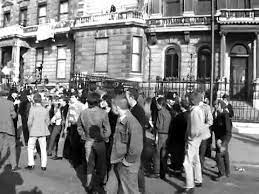
The London Street Commune was a hippy movement formed towards the end of the 1960s. It aimed to highlight concerns about rising levels of homelessness and to house the hundreds of hippies sleeping in parks and derelict buildings in central London. The commune famously squatted a mansion at 144 Piccadilly on Hyde Park Corner, which became a media sensation. The group was quickly evicted in a high-profile Metropolitan Police operation and other squatting attempts were also rebuffed. One of the leaders of the commune who often spoke to the media was known as ‘Dr. John.’ He was Phil Cohen, who later became an urban ethnographer and emeritus professor at the University of East London.
121 Centre

121 Railton Road, first squatted in 1973 by Olive Morris, was a self-managed social centre in Brixton, south London until 1999. As an anarchist social centre, the venue hosted a bookshop, cafe, infoshop, library, meeting space, office space, printing facility, and rehearsal space. Organisations using the space included Food Not Bombs, Anarchist Black Cross prisoner aid chapters, an anarcho-feminist magazine, a squatters aid organisation, and an anarchist queer group. Regular events at 121 Centre included punk concerts, a women’s cafe night, and a monthly queer night. The centre kept a relatively low profile and was one of the longest-lasting squats in London.
Frestonia
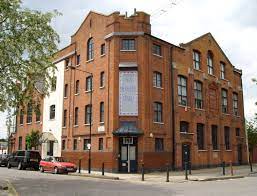
Frestonia was the name adopted by the residents of Freston Road, London when they attempted to secede from the United Kingdom in 1977 to form the Free and Independent Republic of Frestonia. The residents were squatters, many of whom eventually set up a housing co-op in negotiation with Notting Hill Housing Trust, and included artists, musicians, writers, actors and activists. Actor David Rappaport was the Foreign Minister, while playwright Heathcote Williams served as Ambassador to the United Kingdom.
56A infoshop
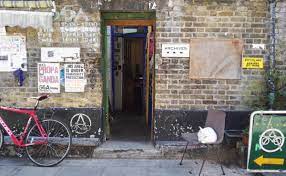
56a Infoshop is a long-term volunteer-run, 100% unfunded DIY social centre in Walworth, South London. It was squatted from 1988 to 2003 and is now rent-paying. 56A survives through the sale of books, zines and graphic novels. There’s an open-access archive of over 1,400 books and 50,000 pamphlets, other printed matter about all sorts of radical local and international politics. 56a has actively supported squatting with fortnightly Practical Squatting nights. Visit 56 Crampton St London SE17: Wed 3-7, Thu 2-8, Fri 3-7, Sat 2-6 for books, archive, kettle, cat, sofa, and more reading! 56a.org.uk
Chez Robert
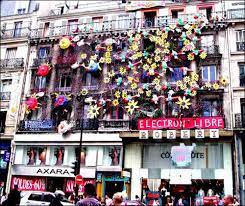
Chez Robert – Electrons Libres is an art gallery in central Paris, France. Formerly an artist’s squat which has occupied the space since 1999, it was legalized and bought by Paris city hall in 2006. The venue became known for its parties, exhibitions, and performances. For 15 years it had been an abandoned branch of Crédit Lyonnais bank when artists took over the six-storey space and began exhibiting art and hosting parties. Officials learned in 2001, when it received positive media attention, that it was the third most-visited centre for art in Paris welcoming more than 40,000 visitors a year.
DA!
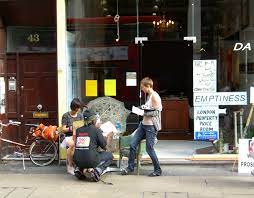
DA! was an art collective that began squatting buildings at 43 Kensington High Street between 2004 and 2010 inspired by Chez Robert. Self-described as a mix of visual, performance and conceptual artists, writers, musicians, thinkers, art students, and students of other disciplines. The last building DA! occupied, called MaDa! was at 18 Upper Grosvenor Street in a 30-room grade II-listed 1730s mansion owned by the billionaire Duke of Westminster. Inside these and other buildings, DA! hosted art shows, installations, music, performance art, etc. “Who we are is not important. As a collective we have ‘squatted’ an empty, dilapidated building in Mayfair … We are making this place live through the exchange of knowledge and ideas”|
rampART
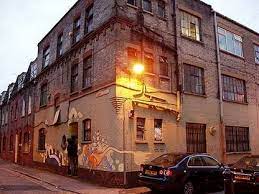
The rampART was a squatted social centre opened in 2004 at 15-17 Rampart Street, E1. The project was initiated by a mix of artists, community groups and political activists. Within the first year, the building had hosted over 100 cultural and political events. Funded by users’ donations or fundraising events it was open to all and ran based on equality for all. The centre was an autonomous space with a strong emphasis on consensus decision making and DIY culture, cooperation, solidarity and mutual aid. The centre lost a court case brought by the owner and awaited eviction from 3 January 2008 until it was finally evicted on 15 October 2009.
Komm in die gange
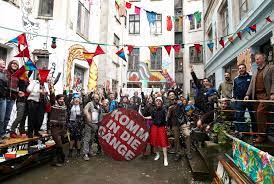
On August 22nd, 2009 two hundred political, social and art activists entered the Gängeviertel district in downtown Hamburg, to save it from decay and demolition, and aiming to create an area to promote arts, culture, and talks, both in studios, apartments, and social projects. Tens of thousands of visitors from all over the world have attended art exhibitions, concerts, live readings, and discussed urban development, many of whom have stayed in the free hostel, eaten from the many kitchens and spent evenings in the bars which now occupy the many different buildings. At present Das Gängeviertel is negotiating the future of the quarter with the City of Hamburg to be free to everybody. Everyone is welcome to join as a visitor, as an active member, or as a sponsor.
The really free school
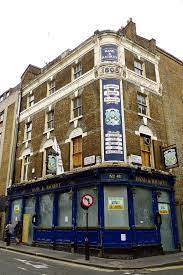
The Really Free School was a collective that squatted a series of buildings in central London in 2011 where they organised lectures and workshops. The name “Really Free School” was intended to mock the contemporaneous interest from the coalition Conservative Party in free schools. Upon eviction, by film-maker Guy Ritchie the group wore Vinnie Jones masks as part of their court appearance. They received widespread support, for example from the Fitzrovia Neighbourhood Association when bailiffs attempted an illegal eviction, and in The Fitzrovia News, who praised the squatters for making a stand against austerity cuts to education facilities.
Pie n Mash
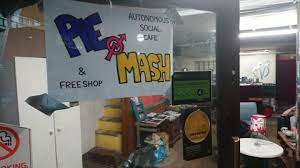
Operating as a radical mutual aid group, in Deptford, the Pie n Mash intends to reopen a squatted cafe when appropriate. Running an autonomous cafe, where people are welcome to come in and participate in the squat without necessarily being “part of the crew” is a rare situation now. The space has someone running it all the time, with free tea, coffee, snacks etc. Available as a free space for any politically affiliated or friendly groups to use for organising meetings or events, they also share information and flyers about local political situations and events. The Pie n Mash changes location, but the project continues.
The Lockon
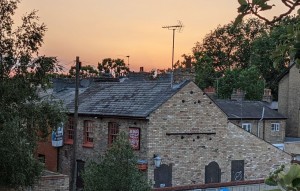
The Lockon is a squatted Pub in Cambridge which, three times a week, hosts the Cambridge Community Kitchen as well as a wide range of other mutual aid activities and groups. The Community Kitchen has delivered tens of thousands of meals during the Covid pandemic via a team of cycle couriers to anyone who requests a meal via their dedicated website. The more permanent residents include activists, artists, students and others who have a focus on transformative justice. In June they opened a temporary second temporary location where they put on Lockfest, an Anti-Fyre festival.
The Space Pirates

Space Pirates continue the work of these activists who, through conscious mutual aid, strengthen squat culture. Pirates were often outsiders, all-rounders and irrespective of their highly diverse backgrounds, promoted ideas like one person one vote and equal sharing of their bounty. Without wanting to get too lost in cliché and metaphor, Pirates can be seen to navigate the city’s great sea of tarmac, and ‘space’ can be thought of as “transformative space”. Fundamental to being a Space Pirates is understanding and using the Pirates Code. This lies at the heart of what it means to be a Space Pirate and is the key to the teamwork which the other five areas of Space Piracy depend upon. Being a space pirate is a state of mind, a way of looking at the world, together.|
– Part 2 –
Transformative Patterns
“THE WHITE MAN FANCIES HIMSELF AS A PRACTICAL person who wants to “get results.” He is impatient with theory, and with any discussion which does not immediately get down to concrete applications. This is why the behaviour of Western civilization might be described, in general, as “Much Ado About Nothing.” The proper meaning of “theory” is not idle speculation but vision, and it was rightly said that “where there is no vision the people perish.” But the vision in this sense does not mean dreams and ideals for the future. It means an understanding of life as it is, of what we are, and what we are doing. Without such understanding, it is simply ridiculous to talk of being practical and getting results. It is like walking busily in a fog: you just go round and round. You do not know where you are going, nor what results you really want.”Chapter 7, The transformation of life, from The Wisdom of Insecurity, by Alan Watts, 1951.
While squatlife presents the opportunity to satisfy many practical and ideological needs from shelter to belonging, it is also an intense experience which unsurprisingly, many people struggle to continue with. Considering everything that’s happening on a day to day basis in any squat, it’s not surprising the fog described above sets in. In this second part, two models are presented in brief, and a third in much greater detail. To evolve with resilience, Space Pirates expand upon ideas like these, exploring other models, theories, ideas and patterns and of course, putting them into practice by using them too! If you would like to co-host a workshop on this broad theme of Transformative Patterns, please get in touch.^
Holding safe space for a transformative experience
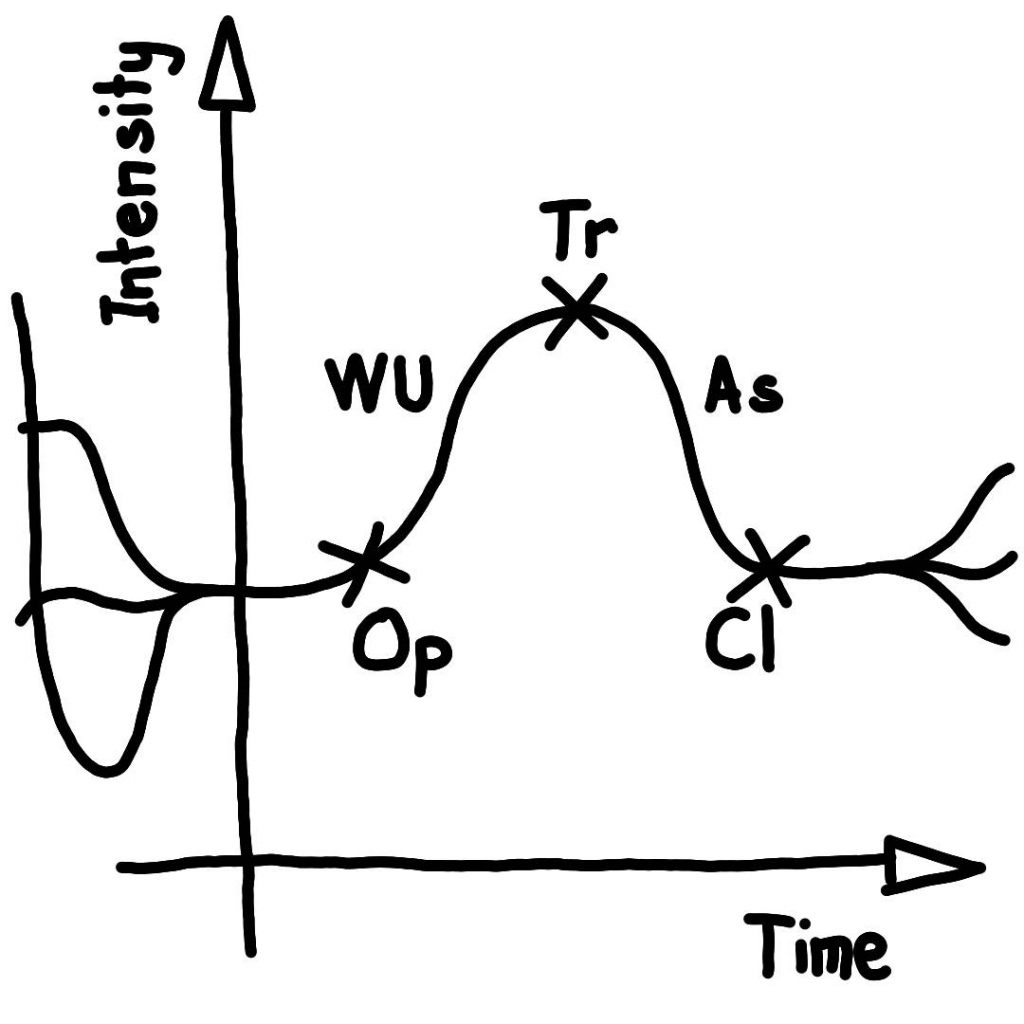
Almost every experience can be transformative (including this tinybook!) This highly versatile model helps navigate those often unexpected experiences which are already intense and complicated enough. On a 1:1 basis or in groups, this model makes explicit something important or special is happening which requires ‘holding’. The intensity of the experience is represented through time. On each side of the moment of transformation [Tr] are opening and closing [Op & Cl] moments of lower intensity eg check-ins. Between these are the warming up [WU] and assimilation [As] stages.
Cultures of organisations
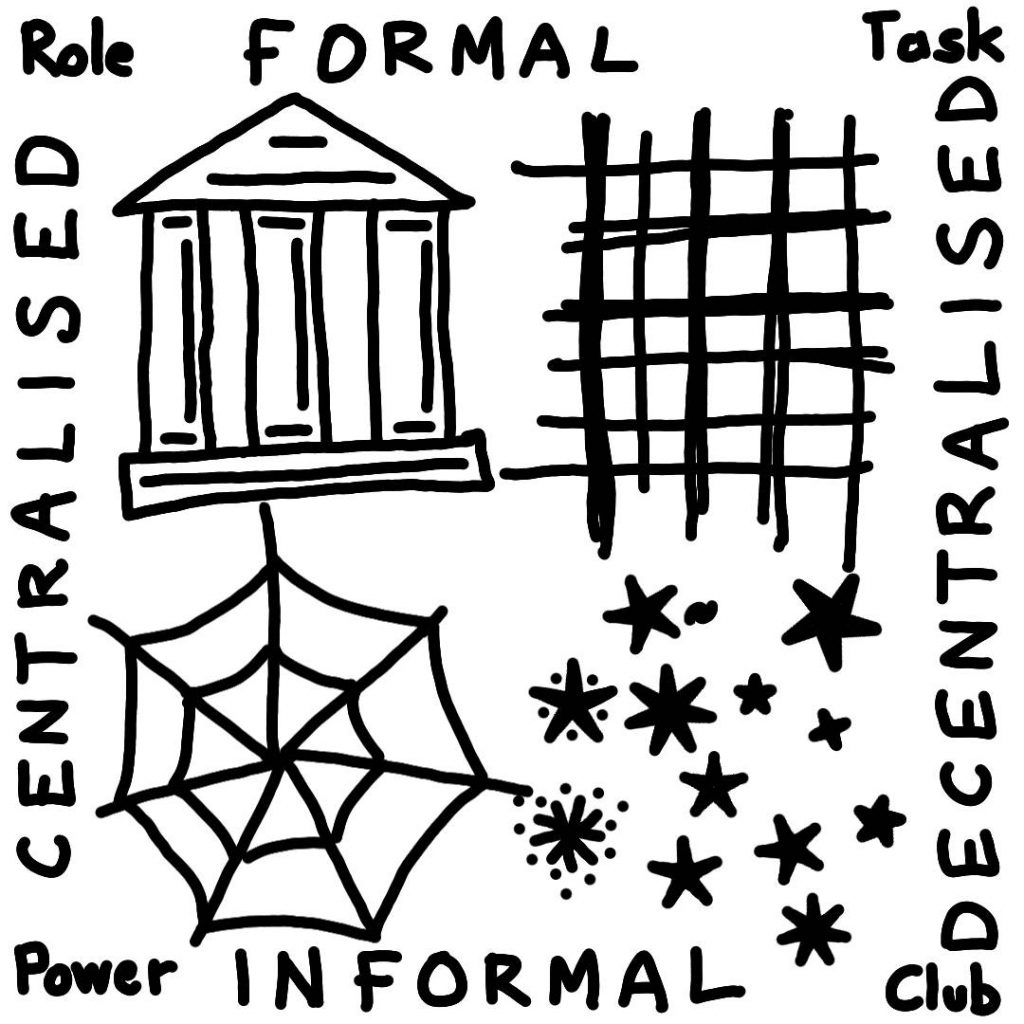
Centralisation runs left to right and Formality top to bottom. The shapes in each corner show how the structures form organisational cultures. The Power culture is intimate, dynamic and gets results, but is fragile. The Role Culture, about rules and bureaucracy, is safe and scaleable, but boring. The Task Culture is solution-focused and expert teamwork enhances its flexibility, but it frays apart easily. The Club Culture is freeform, exciting and supportive, but it’s hectic and can be isolating. Note how the structures share similarities as seen in their placement next to one another. The Role culture is a combination of the Power and Task culture shapes, and so on. Being aware of these cultures, Space Pirates are sensitive to when and how they may need to adapt.^
Consent & Accountability Framework
The diagram and text here is an interpretation of the original documentation found at consentframework.org [(CC)BY-NC-ND]
The Consent & Accountability Framework is a model for a shared understanding of how to bring about – and respond to – action. Its creators are keen to share it and connect with others. The framework embraces transformation and flow. It acknowledges the fact that consent does not always exist, and shows steps of accountability that can be focused on and explored for any given action ‘good’ or ‘bad’. It’s more than a set of rules about what to do, it’s a way of exploring what’s been going on and what might be done. The following pages go into much more detail than the previous two models because the Consent & Accountability Framework is the fundamental structure upon which the culture of Space Pirates is built. That’s why it’s also called the Pirates Code.
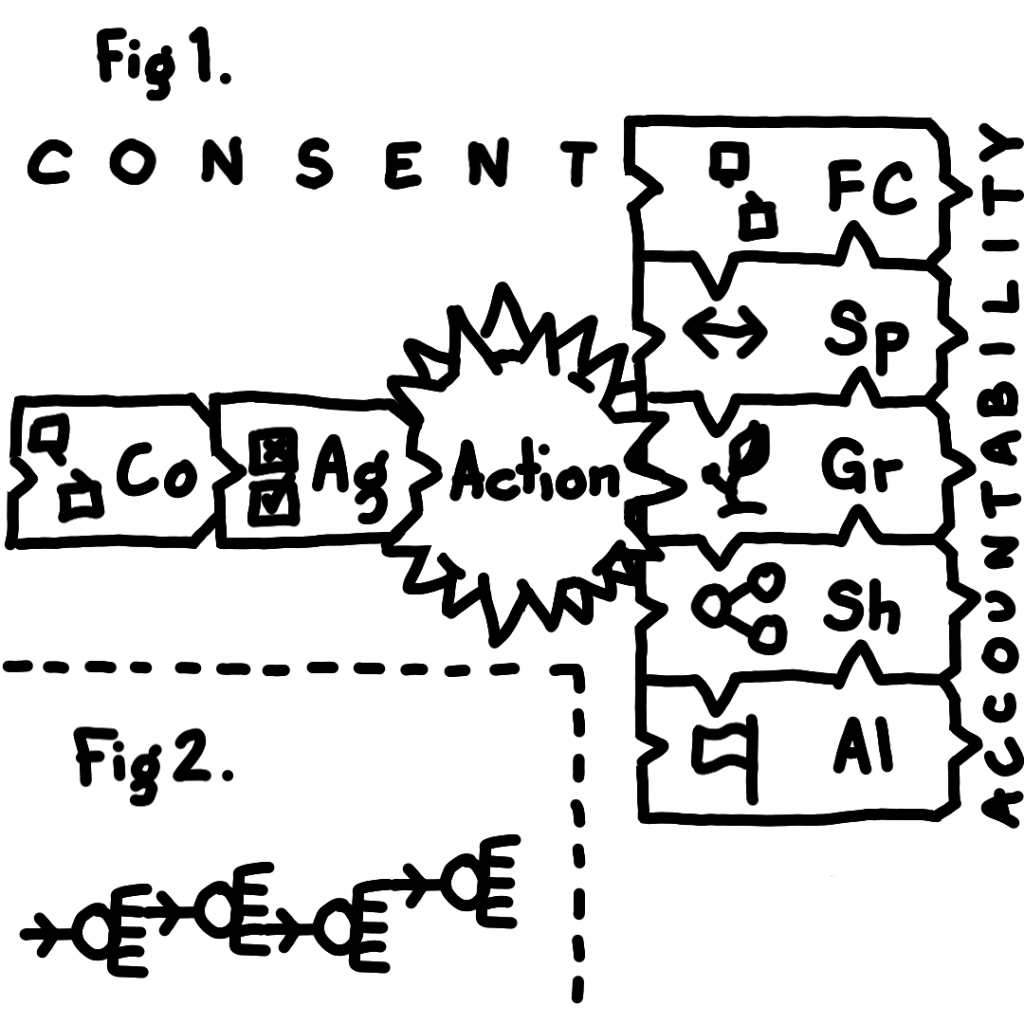
Fig 2. A simplified version showing how the model flows and the ongoing reconnecting of Accountability with Consent
Consent
Communication leading to Agreement leading to Action. That is the definition of consent according to this framework. It may seem surprisingly clear when it’s put that simply however these very broad concepts of Consent and then Accountability will now be explored in more detail. One of the fundamental aspects of the framework is the way it bypasses the need to create static group agreements or ‘rules’ as such. Defining consent therefore may seem paradoxical at first, however, that is where the ‘framework-ness’ comes into play: This definition of consent is provided to complement or as a suggestion in the absence of another definition or practice.
Communication
Of all these steps, Communication is probably the broadest, indeed, the whole model is concerned with communication. What makes communication part of consent is when it is leading to agreement. Communication can happen verbally, physically, via message, in real life, and in other forms. According to the specifics of each unique action, the finer details of communication will become clearer themselves. Various principles exist including clarity, timing, involvement of everyone concerned, etc.
Agreement
Agreement likewise has various principles appropriate to it. For example, it needs to be given freely and is best when it’s explicit. Ambiguity and even disagreement can also be thought of as forms of agreement (eg. ‘maybes’, or ‘agreeing to disagree’) and also in terms of agreeing not to do something. As with Communication before, Agreement needs to be leading towards action (or inaction) to be part of consent.
Action
Action is symbolised by the sun. Actions can be very enjoyable or they can be overheated, in other words, “good” or “bad”. It makes sense to take account of both equally, rather than to use the framework only for overheated actions. The framework remains the same and the distinction between the two can sometimes begin to merge on closer examination. Defining an action is often a difficult – yet enlightening – exercise in itself. What becomes clear is the many ways in which everything is connected. By narrowing things down in terms of a timeframe, pattern, incident, feeling, etc, an Action becomes easier to specify. By being specific in this way, the light of the sun is focused, and as an action is defined, the other parts of the Framework gain their relevance and clarity. ^
Accountability
Accountability is the selection and switching among one or more of five ordered and connected options: Feedback & Coaching, Space, Growth, Sharing, and Alerting. A group is likely to respond to an Action with individuals in it adopting different positions on the accountability scale. It can be helpful to think of these concepts as spectra, the exact nature and range of which depends on any given Action. It can be misunderstood that Alerting is the “bad” end of these options and that Feedback is the “good” end. This interpretation can be highly subjective depending on the action.
These options can be used as a checklist in the heat of an intense moment. By checking-in with yourself and referring to these options you can find where you ‘are’ (eg Space) and consider where you might ‘go next’ (eg Growth, or Feedback & Coaching). The less an action is communicated about and agreed to (ie. the less there is Consent), the more likely the chance it will be responded to further through the five levels of Accountability, but of course this is not a rule.
Feedback & Coaching
Feedback, like Coaching, is usually unasked for and tricky to give. Being collectively understood as the first stage of accountability sets a baseline expectation of honest and open communication from everyone, from the start. Feedback is characterised by informing, it is descriptive, it’s how we learn, and comes from everything around us. Coaching is characterised by persuading and happens when a learner communicates with a teacher of some kind. The type of Feedback and Coaching again will have its own appropriate principles depending on the action. Acknowledging that we are experts on our own lives and that everyone has something to learn is a great frame of mind for feedback. Similarly, asking questions to enable people to discover, and learn for themselves, is an example of gentle coaching. Of course, these are not rules, they are just observations. Everyone involved in any action will have different forms of feedback and coaching to share. Feedback & Coaching is fundamentally intended to help individuals become better community participants.
Space
Space can be physical space or emotional space, it can be temporary or permanent. It is about distance. Although Feedback & Coaching is technically the first stage, Space is usually the first form of accountability we go for whether this is because we are so wrapped up in other joys of the action, or perhaps because it was triggering somehow. Space is surprisingly easy to recognise and to ignore. It can be one of the easiest areas of accountability to move into and one of the hardest ones to move out of. While it may take time to move out of space it is often a good idea to consider what Feedback there has been and what Coaching might be considered, before the next stage which is Growth.
Growth
Growth is pretty self-explanatory and yet can take so many forms it is hard to begin to describe with words. There is a useful distinction to be made between restorative and transformative justice here. One seeks restoration of the status quo, the other seeks transformation. Again the particular details of an Action will emphasise which, if either way to lean.
Sharing
Sharing is communicating information among equals. It is peer-to-peer or horizontal in nature. The intention of Sharing can be to encourage or to prevent Action.
Nb The same information could be communicated to the same recipients in a Sharing or Alerting way. For example, a fire escape route would be Shared during an induction or Altered during an actual fire.
Alerting
Alerting is information communicated among people in a manner that is hierarchical in some way. Alerting is the last level of accountability, and communicates about Action concerning some pre-established hierarchy. This hierarchy may or may not be respected by the group.
Nb The same information could be communicated to the same recipients in a Sharing or Alerting way. For example, a fire escape route would be Shared during an induction or Altered during an actual fire.
– PART 3 –
Introduction to the Space Pirates
Intro to the Space Pirates
This third and final section looks at six areas of affinity in which Space Pirates band together in autonomous groups sharing a voice and responsibility for action. These groups may last only for the duration of a particular action, or for an entire squat, or over a longer time. A Pirate joins, creates, runs and leaves affinity groups autonomously based on mutual interest, skills, need, or any other area of focus. By buddying within these wider areas of affinity in smaller groups of 3(ish) buddies, pirates care closely for each other while working together in wider groups. At present, there are six primary affinity groups..
The Pirates Code
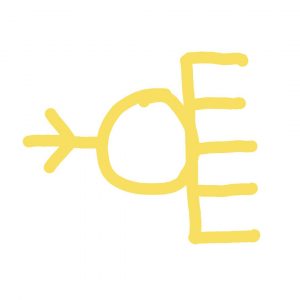
The symbol of the Pirate’s Code is a simplified version of the Consent & Accountability Framework. As mentioned, this framework is used as a structure upon which to build Space Pirates culture. Using this shared language around consent and accountability makes it easy to communicate and share an understanding of what’s happened, what’s happening, and what might happen next. Knowing that being held accountable is expected, those who maliciously violate consent will think twice before getting involved, and those who innocently violate consent can expect to find genuine support to grow in a collectively understood manner. Working from this strong foundation, Space Pirates plan consent focused actions within the following areas of Navigating, Scrolling, Occupying, Loving & Welcoming…
Navigating
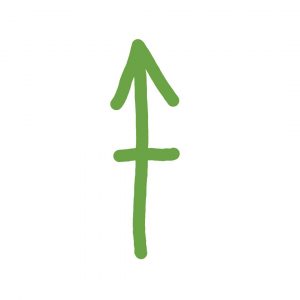
The symbol for Navigating is from the compass arrow on maps, also known as scouting, Navigating is about plotting locations, both plotting them on a map, and plotting ways to secure them. There are various aspects to a well-scouted location. These include visits having been spaced out over weeks at different times of day to ensure it’s unused, finding the full address(es) and postcode(s), an internal inspection assessing the water, electrics and general safety, and so on. Once an address is identified, it is possible to start scrolling the web for more information about how long it has been empty, why, who owns it, etc.
Scrolling
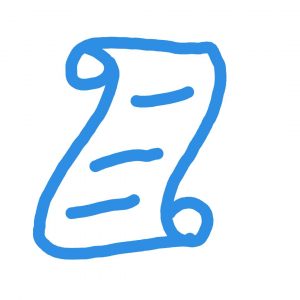
This symbol, based on a scroll has a double meaning. This area involves a lot of scrolling around the internet, but also Scrolling deals with scrolls or official documents like property deeds, court papers, maps, spreadsheets, meeting agendas, minutes, educational materials (like this tinyzine!), squat kitty management, rotas, preparing letters and notices etc. the secretarial and administrative stuff. Scrolling is therefore very wide-ranging and involves being in close communication with all other areas of Space Piracy.
Occupying

The Occupying symbol is, of course, the internationally recognised squat symbol. Occupying is about remaining in locations and maintaining their physical security, safety and basic usability. Occupation begins the moment access to a building is secured for the first time. There are two basic units needed to establish and continue occupation of a squat: a kitchen and a workshop. These things depend on one another, and the rest depend on them. The culture within these areas says a lot about the wider culture of a squat.
Loving

Loving is symbolised by a heart shape. It is a widely shared affinity that focuses on tending to the daily needs and comforts of those who maintain and inhabit locations, be they physical, social, psychological, etc. Loving can be likened to wellbeing. Loving exists in many forms, from the shared experiences of mealtimes and meetings to the self-love of some alone time or browsing the freeshop, to love which endures, to spiritual love, and of course flirty playfulness, etc! Closely connected to the Pirate’s Code, a big part of Loving is actively using the consent and accountability framework.
Welcoming
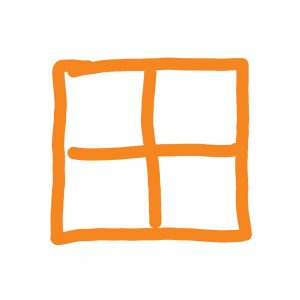
Symbolised by a window frame, Welcoming is the ultimate objective of Space Pirates. By welcoming others to share abandoned spaces in inclusive and conscious ways, Space Pirates co-create virtuous cycles of direct action and mutual aid promoting and creating eclectic opportunities which emerge in places like squats. Having begun to explore a few transformative patterns and examples of how current and historic squats engage with others, Space Pirates continue learning and sharing information about co-creating, welcoming, evolving, and building on resilience in squat culture.
BTW Hi I’m Cyborg Psychopomp
Thanks and extra special invited
56a infoshop, Abel, Allan, Amal, Badger, Bagsi, Bandit, Ben, Ben Ben, Benji, Bily, Billy, Blue, Blue, Bruno, Bogna, Casper, Cat Dog, Chaos, Choman, Clive, Clover, Cosnet, Crazy, Cyborg, Dalia, Dan, Daniel, David M, Doughnuts, Dragon, Elisa, Emmmz, Froggy, Garlic, Gaspard, George, Hakan, Hazel, Hugh, Hyena, Iggy, Indigo, Iris, Ivie, Jack, Jade, Jenny, James D, James M, James, James, Jimmy O, Jimmy N, Joseph, Jules, Kalex, Karoli, Keenan, Konrad, Konrad, Larch, Laser, Laura, Lavender, Les Lapins, Libby, Lily, Lily, Linda, Linda, Lion, Louis, Marcus, Mark, Martin, Marushka, Matt, Max, Megan, Miller, Milo, Monika, Morgan, Muffin, Murat, Myk, Nabila, Nice Man, Nikki, Nyx, Paige, Poppy, Power of 3, Pragu, Ramon, Ribena, Roxy, Sam, Seamus, Serge, Shrike, Slightly, Smiley, Songbird, Spruce, Steph, Storm, Stu, Suisse, Sydney, Taly, VJ, Vish, Will, Zappi, Zephyr, Zuko…
(back cover)

